Is being a Cardiologist your dream career option? Check out the complete step by step process on how to become a Cardiologist, Eligibility, Exams, Skills Required and Salary in 2023.
A cardiologist is a highly skilled licensed medical professional who treats patients suffering from cardiac conditions and diseases. They diagnose and provide the correct course of treatment in case of heart attacks, blockages, blood pressure and cardiac defects. It is a noble profession with one of the highest salaries in India.
Candidates who wish to pursue their career as a Cardiologist must have an MBBS, MD and DM. They need to choose a specialisation, such as interventional or nuclear cardiology, at a later stage. Aspirants must dedicate 10 to 13 years after their school level to become a Cardiologist. Importantly, they must have skills like critical thinking, mental dexterity, and technical knowledge.
Table of Contents:
- How to Become a Cardiologist?
- Who is a Cardiologist?
- What Does a Cardiologist Do?
- Skills Required to Become a Cardiologist
- Types of Cardiologists
- Salary of a Cardiologist
- Pros and Cons of Becoming a Cardiologist
How to Become a Cardiologist?
Aspirants wanting to learn how to become a cardiologist can follow the below steps. Candidates must remember that it is a complex career choice and involves hard work, dedication and skills to make a career as a Cardiologist.
- Step 1: Clear 12th with PCB
- Step 2: Get a Degree
- Step 3: Enrol for a Fellowship
- Step 4: Apply for a Licence
- Step 5: Start Practising Cardiology
Step 1: Clear 12th with PCB
Candidates wishing to pursue their career as a Cardiologist must remember the following points for their school-level education.
- Aspirants need to take Science stream with a combination of Physics, Chemistry, Biology and English after completing class 10.
- They must qualify for class 12 with a minimum of 50% to progress further to become a Cardiologist.
- Candidates must prepare for future entrance exams by following the class 11 and 12 syllabus.
Step 2: Get a Degree
After completing Class 12, candidates must enrol for NEET UG (National Eligibility cum Entrance Test for Undergraduate Courses) to begin their MBBS journey. For PG programmes, candidates need to appear for NEET PG and NEET SS.
Clear Entrance Exams
Details of the entrance exams required to become a cardiologist are mentioned in the table below.
|
Level |
Entrance Exam |
RegistrationFee Details |
Eligibility |
|
Undergraduate Courses |
NEET UG |
INR 1600 |
|
|
Post Graduate Courses |
NEET PG |
INR 4250 |
|
|
Doctorate |
NEET SS |
INR 5000 |
|
Once candidates qualify in the NEET entrance exam, they can apply for admission to MBBS, MD, MS or DNB courses.
Degree
To become a Cardiologist in India, candidates must first apply for UG cardiology courses with their class 12 marks and NEET UG scores. Candidates must also meet the cutoff criteria to gain admission to their desired course and college to study cardiology.
Undergraduate Level: MBBS
Candidates can apply for admission to 5-year MBBS courses after clearing the NEET UG exam. Here they will study the basics of the human body, surgery and medicine. Candidates who wish to pursue Cardiology need to complete their MBBS.
After completing MBBS, candidates can work as Physicians, General Surgeons, Medical Officers, Resident Medical Officers, etc. However, candidates must pursue further education with specialisations to become a cardiologist.
Postgraduate Level: MD Cardiology
One of the most vital steps of becoming a Cardiologist is admission to a 3-year Doctor of Medicine programme. Candidates must secure at least 50% marks or equivalent and clear NEET PG to secure admission in MD programmes at top colleges.
- Candidates will learn microbiology, pharmacology, pathology, anatomy, biochemistry and more in their first year of MD.
- In the final two years, MD candidates can select any specialisation such as Cardiology, Surgery etc.
- A Cardiology aspirant must take up Cardiology in the final term to build their career.
Doctorate: DM Cardiology
Candidates who wish to learn more about cardiology must qualify for NEET SS to apply for the 3-year Doctorate of Medicine in Cardiology. It is a super speciality course wherein candidates can become experts in subspecialties like Interventional Cardiology, Nuclear Cardiology etc.
Top Cardiology Colleges in India
To summarise the educational qualification, candidates must check out the best colleges to pursue a career in cardiac sciences.
- AIIMS, New Delhi
- PGIMER, Chandigarh
- NIMHANS, Bengaluru
- JIPMER, Puducherry
- King George's Medical University, Lucknow
- CMC Vellore
- BHU
Step 3: Enrol for a Fellowship
Candidates can apply for a fellowship that may last 2 to 3 years in Cardiology. A fellowship will aid candidates in gaining first-hand experience under the guidance of established Cardiologists. Additionally, candidates can choose to focus on their sub-specialities during their fellowship.
Step 4: Apply for a Licence
To practise as a Cardiologist in India, aspirants will require a Licence issued by the National Medical Commission or Medical Council of India. To obtain the Licence, candidates must take a written exam as well as a practical exam. Without the LicenceLicence, candidates will not be able to practise in India.
Step 5: Start Practising Cardiology
All the steps mentioned above are the cardiologist eligibility criteria requirements in India. Once they complete the previous steps, which may take 10 to 13 years, aspirants will be deemed Cardiologists. They can begin working in hospitals or open their own practice.
Who is a Cardiologist?
A Cardiologist is a medical expert who treats conditions and ailments of the human cardiovascular system. They specialise in the study of the heart and blood vessels. Importantly, a Cardiologist treats conditions such as cardiac arrest, arrhythmia, coronary artery disease, congenital heart defects, endocarditis etc.
Besides, they work collaboratively as consultants to other physicians and help them in the diagnosis process. A cardiologist performs heart transplants, angioplasty, catheterisation and more. It requires years of training and education to become a cardiologist in India.
What Does a Cardiologist Do?
A Cardiologist is a heart specialist at its core. They are responsible for the treatment and diagnosis of heart-related diseases and issues. To sum up, what does a cardiologist do, we will look at the below pointers.
- Cardiologists assess heart issues in patients.
- Cardiologists prescribe the required method of treatment and suggest tests and medications.
- In addition, they perform heart surgeries.
- They are involved in the research and tracking of unknown heart-related diseases.
- They always look for the best course of action to treat a patient.
- Cardiologists make patients aware of risks related to the condition, disease and treatment procedure.
Skills Required to Become a Cardiologist
Candidates who wish to become Cardiologists must acquire some key soft and hard skills to excel in their careers. The cardiologist's skills are listed below.
Soft Skills
Cardiologists must have these soft skills to make a successful career.
- Patience: To become a Cardiologist, candidates require years of hard work and dedication to gain educational qualifications and work experience. This needs patience, and only a candidate with the bandwidth to withstand the long journey to becoming a Cardiologist can master other skills.
- Confidence: Candidates must be confident about their treatment process, which will instil assurance to the patient. If a cardiac surgeon is shaky during a procedure, they might not perform their duties successfully. Hence, a Cardiologist must be confident of gaining the trust of their patients.
- Critical Thinking: Cardiologists often face difficult work circumstances where their problem-solving abilities must be used. They need to analyse, study, detect and come up with the right treatment to determine their patients' future.
- Stamina and Dexterity: Working as a Cardiologist can be physically as well as well as mentally challenging. It requires long hours and a high-pressure environment. This requires candidates to have strong mental agility and stamina to endure the work pressure.
- Team Work: Cardiologists often work with a team of medical professionals. This requires strong collaborative skills and building interpersonal relationships to manage daily operations.
Hard Skills
A strong set of hard skills will put a Cardiologist ahead in their workplace. Some of the top hard skills that are required to become a good cardiologist include,
- Technical Knowledge: Candidates must be adept with medical technology, as it is advancing, and medical tools are used daily to treat patients. Therefore in-depth technical knowledge will help Cardiologists perform optimally.
- Analytical Skills: A cardiologist may need to perform certain procedures daily, like an ECG or Echocardiogram. This requires candidates to be able to analyse reports after performing certain tests.
- Industry Knowledge: Medicine is always evolving. Therefore cardiologists must be up-to-date with all the latest developments concerning treatments, diagnosis and discoveries.
- Practice: Candidates must keep practising in their field, as only years of knowledge and hands-on experience make a Cardiologist reliable and a master.
Types of Cardiologists
The different types of Cardiologists candidates choose as a career option are mentioned below.
1. Cardiac Surgeon
A cardiologist surgeon performs operations on the cardiovascular system and blood vessels. Candidates would be required to obtain a licence before practising as a surgeon. Cardiac Surgeons require a high level of training and academic qualifications.
2. Interventional Cardiologist
Cardiologists need two years of formal training to diagnose and treat ailments related to cardiac muscles and blood vessels. They are known to treat conditions using catheterisation and more.
3. Cardiology Technologist
A cardiology technologist is responsible for conducting tests and procedures to find diagnoses of heart-related conditions. They also operate cardiology equipment and specialise in ECGs, EKGs, Stress Testing and Holter Monitoring.
4. ECG Technician
An ECG Technician runs diagnostic tests using electrocardiogram machines to assess a patient's heart rate and cardiac rhythm. They help detect problems to ensure patients live a long and healthy life.
5. Nuclear Cardiologist
Nuclear Cardiologists are known to perform non-invasive techniques to detect blood flow, the heart's pumping rate and the size and location of the heart in case of a cardiac arrest. Myocardial perfusion imaging is one of the most popular techniques practised by cardiologists.
Salary of a Cardiologist
According to Payscale, the average cardiologist's salary in India is INR 14,51,344 PA. A cardiology technician may earn an early base salary of INR 1,00,000 annually. With experience, a cardiologist in India receives a package up to INR 95,90,000 PA.
Candidates can check the job designation-wise average Cardiologist salary from the table below.
|
Cardiologist Designation |
Average Annual Salary |
|
Clinical Cardiologist |
INR 18,00,000 PA |
|
Associate Cardiologist |
INR 24,00,000 PA |
|
Interventional Cardiologist |
INR 24,00,000 PA |
|
Consultant Cardiologist |
INR 30,00,000 PA |
|
Cardiology Technician |
INR 2,20,000 PA |
Source: ambitionbox.com
Cardiologist Career Path
Although there are different types of cardiologists, there are two main cardiologist roles which candidates can view as their career progression.
Junior Cardiologist
A Junior Cardiologist is responsible for patient consultations, writing prescriptions, and finding prognoses and diagnoses. They must also do health checkups and record treatment and patient health history.
Senior Cardiologist
A senior cardiologist will treat patients depending on their condition and suggest suitable ways to cure them. They are responsible for suggesting surgeries if required or any non-invasive procedures. They are also required to check post-operative patients and do follow-ups.
Head of Cardiology
The Head of Cardiology plays a directorial role in a medical Institution. They are responsible for leading the Cardiology department and running the staff and operations. Head of Cardiology ensures that all medical and executive duties are run smoothly while maintaining hospital protocols.
Top Recruiters of Cardiologists
Cardiologists have a huge demand in India. The top recruiters who hire cardiologists are mentioned below.
- Apollo Hospitals
- AIIMS
- Narayana Healthcare
- Fortis Healthcare
- Max Healthcare
- Narayana Hospitals
- BM Birla Heart Health Research
- Asian Heart Institute and Research Centre
- Kerala Institute of Medical Sciences
Pros and Cons of Becoming a Cardiologist
Becoming a Cardiologist is a highly reputable job in the medical industry. However, there are both pros and cons attached to becoming a Cardiologist in India. Candidates interested in knowing more can check the below pointers.
Pros of Becoming a Cardiologist
Below are the pros of becoming a Cardiologist.
- Cardiologists earn one of the highest packages as medical physicians.
- There is a huge scope for growth in the profession.
- The scope of work is varied and interesting.
- It is a highly respectable profession
- Cardiologists gain a lot of knowledge with the amount of education they pursue in their lifetime.
Cons of Becoming a Cardiologist
Lastly, let us check the cons attached to becoming a cardiologist.
- Long working hours lead to exhaustion and depletion of the quality of personal life.
- Cardiologists face challenges daily.
- They need to handle patients from different backgrounds.
- The educational pathway is long and tedious.
- No fixed working hours.



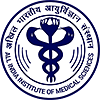
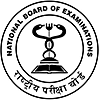


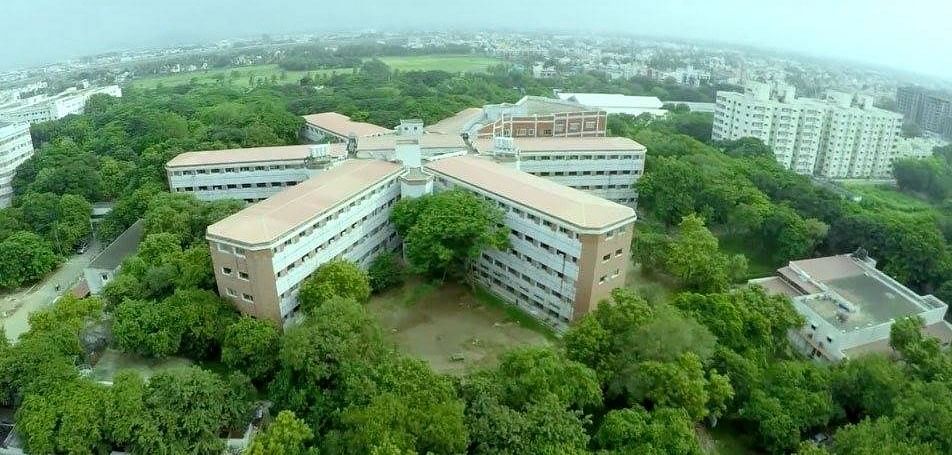

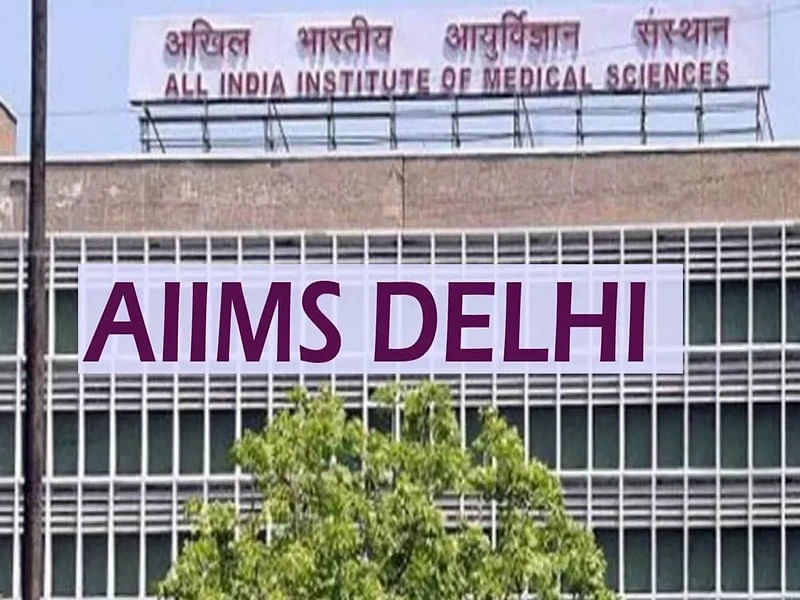
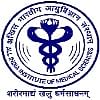





POST YOUR COMMENT